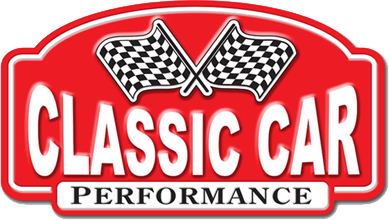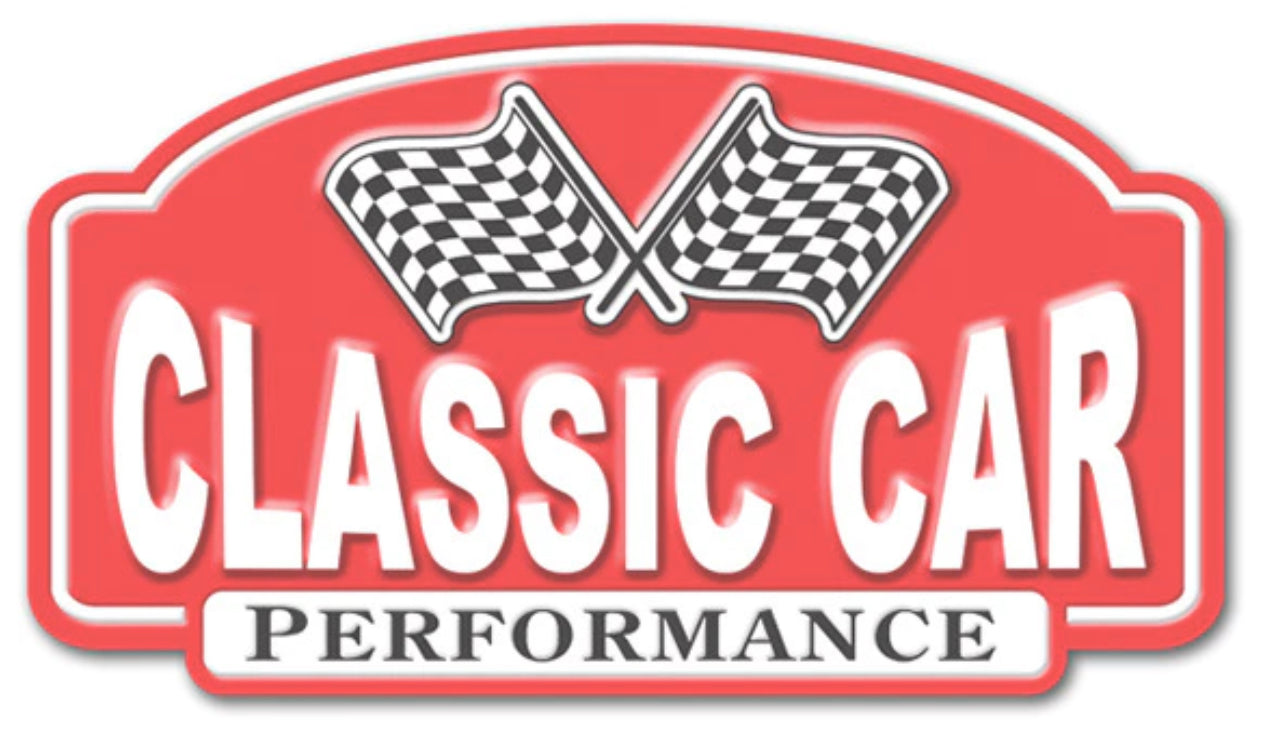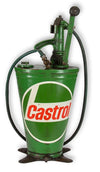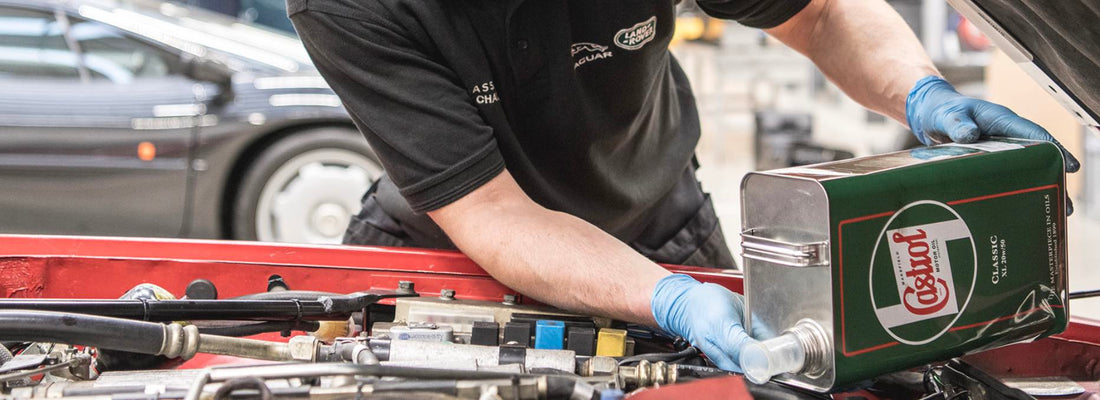WHAT IS THE JAGUAR HERITAGE WORKSHOP?
Classics deserve to be loved forever, and Jaguar Heritage is dedicated to supporting the owners of historic Jaguar and Land Rover models. We recreate heritage cars as well, and the Lightweight E-type holds a unique distinction, being our first model in the series and the first car to be built at our Heritage Workshop.
Jaguar Classic is the official source of authentic cars, expert services, genuine parts and unforgettable experiences for classic Jaguar enthusiasts worldwide. Our team of highly‑skilled engineers at the Jaguar Land Rover Classic Works facility in Coventry specializes in creating authentic heritage products including limited edition collectable vehicles and new original Continuation cars, such as the Jaguar D‑type and C‑type.
LINK: Jaguar Heritage Workshop
WHY DO THEY USE CASTROL CLASSIC OIL?
While the allure of a classic car's design and craftsmanship can be breathtaking for classic car enthusiasts, maintaining these masterpieces in their original form is an

ongoing labour of love. One of the most crucial steps in the care routine of any classic car is the choice of oil – ensuring that the lifeblood of its engine is as authentic and compatible as the history it carries.
Here, we'll delve into who Castrol is, why Castrol Classic Oil is the best choice for classic car care, and the benefits it offers for classic engines and other elements that you need to consider when maintaining any classic car.
WHO IS CASTROL?
Castrol began producing transmission fluids in 1906, and has been advancing in motor technology ever since. During this time, many formulations have been tweaked and improved, so Castrol really does know what works with different engines.

UNDERSTANDING THE UNIQUE NEEDS OF CLASSIC ENGINES
Classic car engines were often designed using simpler constructions and dated technologies. The needs of these classic engines are vastly different from the engines of today's vehicles. Lubrication, or the lack thereof, can mean the difference between an engine that runs well and one that doesn’t.
Modern oils need to meet specific criteria regarding fuel emission, extended drain intervals and after-market exhaust treatment systems. As a result, they are generally thinner and are fully synthetic, making them increasingly incompatible with older heritage engines.
Therefore, choosing the right oil for classic Jaguars and Land Rovers is essential for the engine to remain in peak running condition, and to ensure maximum protection against wear.

THE BENEFITS OF CHOOSING CASTROL CLASSIC OIL
Castrol Classic Oil is extremely popular amongst classic car owners due to its vast array of benefits for you and your vehicle, including:
- Castrol Classic Oil doesn't just protect – it also ensures that heritage engines run smoothly. With specially selected base oils and improved combustion characteristics, the oil enhances the lubrication process, reducing friction and providing a smoother, quieter drive.
- Anti-wear additives are added to ensure that if the oil film between moving parts breaks down prematurely, metal-to-metal contact and irreparable engine damage are prevented.

- Using the correct corrosion inhibitors helps prevent components from becoming pitted with rust, caused by a build-up of acid and water vapour during engine combustion.
- Special dispersant additives prevent soot, wear metals and the by-products of combustion from settling out in the sump and other areas of the engine, where they can form a thick sludge that can block filters and oil ways.

WHY USE FUEL ADDITIVES?
One of the most pressing issues for classic vehicles is the use of ethanol in modern fuels. Ethanol can be corrosive to the engine's components, promoting rust and potentially spoiling old systems.
Fuel additives can neutralise these effects and stabilise the fuel for storage, which safeguards the classic car's fuel system. Not only this, but fuel additives boast even more benefits that your classic car will thank you for. These include:
- Unleaded fuel can cause valve seat recession, fuel tank and transmission erosion in classic leaded engines, so it is vital to use fuel additives to help prevent damage.
- Valvemaster is a lead replacement fuel additive, with lead-free fuel that protects the engine against valve seat recession and keeps the fuel system clean while preventing corrosion.
- For even greater performance, Castrol Valvemaster Plus provides an octane boost to unleaded fuel, reducing pinking, knocking or the need to retune.
HOW OFTEN SHOULD I CHANGE THE OIL?
To ensure that your classic car performs at its best, regular maintenance is essential, and oil changes are no exception. The mileage at which you should consider changing the oil in a classic car varies from one model to another, as well as the car's usage patterns.
Classic cars often spend more time idling than modern vehicles, and the oil, over time, may succumb to temperature changes and extended periods of inactivity. Regular changes, even if the mileage driven is low, can help to preserve the engine, avoiding the formation of sludge and acids.
In general, we advise that you change your oil every 3,000 miles or six months, whichever comes first. However, using the premium nature of Castrol Classic Oil can extend this duration. Regular checks are still crucial, ensuring that the oil is clear and that the engine runs smoothly between changes.

Ultimately, maintaining your classic car with supplies designed specifically for classic cars will only benefit you and your car. By choosing Castrol Classic Oil, you're selecting a brand that reflects the classic car's intentions – to preserve, protect and propel through the ages.
If you’d like to find out more about our seasonal check-ups and maintenance services, visit the Classic Works website today.







